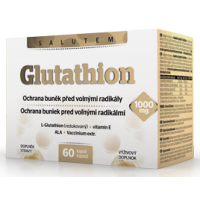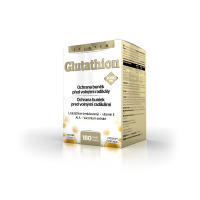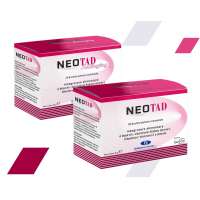Glutathione: A Powerful Antioxidant and Its Importance for Health
Glutathione is a molecule that has been widely studied in scientific circles, but often overlooked by the general public. Its main significance lies in its ability to provide antioxidant protection and support proper immune system functioning. In this article, we will discuss the main points about glutathione, its biological role, sources, and potential health benefits.
Glutathione (GSH) is a tripeptide composed of the amino acids glutamate, cysteine, and glycine. It is one of the most potent antioxidants found in the human body. Glutathione performs multiple functions, including maintaining antioxidant protection, participating in detoxification processes, DNA synthesis, immune system regulation, and preventing oxidative stress.
Biological Role of Glutathione
- Antioxidant protection: Glutathione is an essential component of the body's antioxidant system. It helps eliminate free radicals, which are products of normal metabolism and can cause oxidative stress. Oxidative stress, in turn, can lead to the development of chronic diseases such as cancer, cardiovascular diseases, and diabetes.
- Detoxification: Glutathione plays a key role in detoxification processes, converting toxic substances into less harmful forms that are then eliminated from the body. This makes glutathione an important component of liver enzymes responsible for the metabolism of drugs, chemicals, and other toxins.
- DNA synthesis: Glutathione is essential for DNA synthesis and repair, as it helps maintain genome stability and prevent disruptions in replication and transcription processes. Disruption of these processes can lead to mutations and degenerative diseases.
- Immune system regulation: Glutathione plays an important role in regulating the immune system. It supports the functions of immune cells, promotes the proliferation and activation of lymphocytes, which is necessary for an effective immune response. Glutathione also helps control inflammatory reactions, reducing the risk of developing chronic inflammatory diseases.
Sources of Glutathione
- Synthesis in the body: Glutathione is synthesized in all cells of the body, but the highest concentrations are found in the liver, kidneys, heart, and lungs. Glutathione synthesis depends on the availability of amino acids glutamate, cysteine, and glycine, which can come from food or be synthesized in the body independently.
- Diet: Some foods, such as vegetables, fruits, and meat, contain glutathione or its precursors. Rich sources of glutathione include avocado, spinach, asparagus, nuts, meat, and fish. However, when ingested, glutathione is broken down in the stomach, and its bioavailability is reduced.
- Supplements: Glutathione is also available as dietary supplements, which can help increase its level in the body. However, long-term use of glutathione supplements should be done with caution and under the recommendation of a physician, as excessive amounts of glutathione can cause side effects.
Potential Health Benefits of Glutathione
- Prevention of chronic diseases: Protection from oxidative stress with the help of glutathione may prevent the development of chronic diseases such as cancer, cardiovascular diseases, and diabetes. Some studies show that increased glutathione levels in the body are associated with a reduced risk of developing such diseases.
- Immune system support: Strengthening the immune system with glutathione may help prevent infections, improve overall health, and speed up the recovery process. This is especially important for people with weakened immune systems, such as the elderly and those with chronic illnesses.
- Slowing down the aging process: Glutathione may help slow down the aging process, as it protectscells from oxidative stress, which contributes to aging and tissue degeneration. Increasing glutathione levels in the body may enhance antioxidant protection and improve overall health.
- Improving cognitive functions: Glutathione may have a positive impact on cognitive functions such as memory, attention, and learning ability. This may be related to its ability to protect nerve cells from oxidative stress and inflammation.
- Enhancing athletic performance: Glutathione may contribute to improved athletic performance, as it reduces oxidative stress levels and increases antioxidant protection. This can help athletes improve their endurance, accelerate recovery after workouts, and prevent injuries.
Glutathione is a powerful antioxidant that plays a crucial role in maintaining health and preventing the development of chronic diseases. Increasing glutathione levels in the body can offer numerous health benefits, including strengthening the immune system, slowing down the aging process, and improving cognitive functions. However, before starting the use of glutathione supplements, it is advisable to consult a physician to avoid potential side effects and determine the optimal dosage.
To maintain healthy glutathione levels in the body, a balanced diet rich in antioxidants and amino acids necessary for glutathione synthesis should be observed. Additionally, a healthy lifestyle, including regular exercise, quitting smoking, and moderate alcohol consumption, can also contribute to increased glutathione levels and antioxidant protection.
In conclusion, glutathione is an essential component of health, and understanding its role in the body can help individuals make lifestyle and dietary changes to support antioxidant protection and improve overall health.
Related Products
SALUTEM Glutathion 1000 mg, 60 capsules
: 1299 Kč
SALUTEM Glutathion 1000 mg, 180 cps
: 3499 Kč
NEOTAD 20 x 2 g
: 559 Kč








